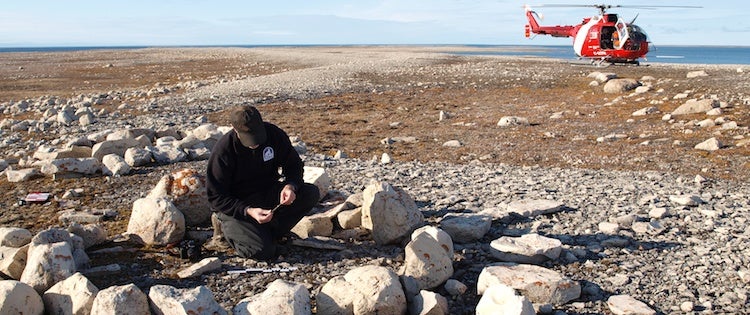Research

Research

Research

Our eight core faculty members pursue scholarship in a wide spectrum of anthropological subdisciplines, extending their fieldwork into the global context and across the centuries.
Research interests and projects take our faculty members to:
- Canada's Arctic for archaeological research on the historic interactions between Inuit groups and western explorers such as the Franklin expedition.
-
Ancient Greece for excavation and analysis of human remains and their mortuary contexts to understand the interactions of culture, status, burial practice, and pathologies in Greek antiquity.
- Chile, Spain, and Germany for ethnographic fieldwork on knowledge creation and its transformation via both cultural and scientific practice.
-
South Korea and the US for studies of language, race, multilingualism, and transnationalism.
-
Turkey and Cyprus for ethnographic research on the everyday politics of religious difference, gender ideologies, border regimes, and migration.
- Ontario for collaborative archaeological research involving Indigenous pasts in the lower Great Lakes.
- Taiwan and the USA for research in cross-cultural bioethics, including ethnographic studies of drug use, sex work, homelessness, and stem cell research.
- Jordan for excavation of an Early Bronze Age funerary landscape, analysis of human remains, and their microstructural and chemical compositions to investigate the lives of past peoples living in one of the earliest polluted landscapes in the world.
- Sudan for excavation of a medieval capital and a desert monastery, examination of diet and mobility using isotope analyses, assessment of human skeletal remains for evidence of experiences of pathology, and broader burial landscape investigation.
- Egypt for excavation of Pharaonic and later burial contexts in the Tombs of the Nobles, documentation and analyses of mummified and skeletonised human remains, assessment of embalming practices, and life history.
